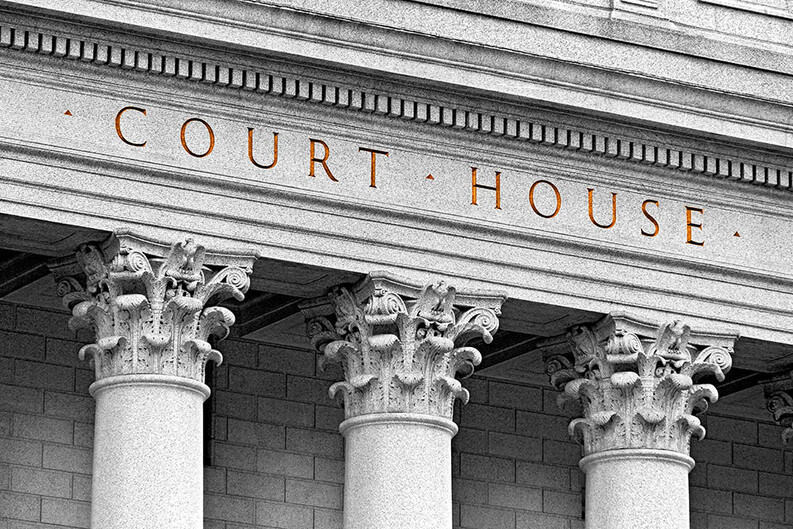Appellate Litigation Project Secures Second Circuit Victory

Students from the Advanced Appellate Litigation Project (ALP) secured a victory in May for a former prisoner who alleged that he was denied meals complying with his religious dietary restrictions. In a decision issued on May 17, 2018, the U.S. Court of Appeals for the Second Circuit agreed with ALP’s argument that the inmate satisfied the “imminent danger” exception to the Prison Litigation Reform Act’s “three-strikes rule,” which would have otherwise barred his case. The decision in Jackson v. Marks is the fourth consecutive victory this year for the clinic, which, under the supervision of Professor Steven Duke and members of Wiggin and Dana’s appellate practice group, represents formerly pro se appellants in federal courts of appeal.
NahShon Jackson, a devout Rastafarian, sued the New York State Department of Correction and community supervision officials in 2016. Jackson alleged that he had been forced to go without approximately half of his meals for over a year, ever since the prison abruptly switched his meal plan to one that did not comply with his religious dietary beliefs. The District Court for the Southern District of New York dismissed Jackson’s complaint under the three-strikes rule, which prohibits inmates from filing lawsuits in forma pauperis (i.e., without paying a filing fee) if they have already had three prior complaints dismissed. Although the rule contains an exception for complaints alleging that the inmate is in “imminent danger of serious physical harm,” the District Court concluded that Jackson’s deprivation of food did not satisfy the exception.
After Jackson appealed, the Second Circuit appointed the Appellate Litigation Project to represent Jackson. Clinic students Matteo Godi ’18, Jessie Garland ’19, and Samuel Adkisson ’18 drafted a brief under the supervision of Visiting Clinical Lecturers Benjamin Daniels and Tadhg Dooley. The team argued that the extended deprivation of food places an inmate in “imminent danger of serious physical harm,” and that courts ought not subject allegations of imminent danger to undue scrutiny in order to answer the threshold procedural question of whether to waive an inmate’s filing fee.
On May 3, 2018, Godi argued the case before a Second Circuit panel consisting of Judges Pierre N. Leval, Gerard E. Lynch, and Christopher F. Droney. Within two weeks, the Court issued a decision adopting the clinic’s arguments and remanding the case for further proceedings in the District Court.
“Ensuring the doors of federal court aren’t shut to prisoners with potentially viable claims is vital for our civil justice system. It is astonishing how often prisoners’ rights are abused behind the prison bars—even when it comes to basic human rights such as adequate food. And that is why it is so important to review on appeal cases where district courts summarily turn prisoners away simply because they are too poor to afford a filing fee,” said Godi. “As a law student, briefing and arguing a case in front of a federal court of appeals is an unparalleled learning opportunity and a truly humbling experience.”
“The clinic has only been an offering at the Law School for three years, but it’s clear that we are on a roll,” Godi added. In fact, in the past year, ALP students have secured favorable outcomes for a young man facing deportation despite his claim to derivative citizenship, a pretrial detainee who was mauled by a German Shepherd during a cell extraction, and another New York prisoner challenging the State’s parole regime. The clinic also submitted an amicus brief on behalf of the respondents in Trump v. Hawaii. A decision in that case is expected by the end of June.


